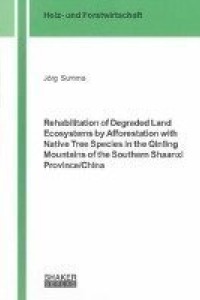
Liknande böcker
A Common Pool Resource in Transition : Determinants of Institutional Change for Bulgaria's Postsocialist Irrigation Sector
Bok av Insa Theesfeld
The study aims to contribute to positive theory of common-pool resource management in transition. Thus, the objective of this work is to explain and understand the dynamic process of institutional change in Bulgaria's irrigation sector in transition.The work commences from a natural resource management perspective that is applied to a transition case. For this purpose, the theoretical discussion is based on the Common-Pool Resource Theory, which investigates different property rights regimes of common-pool resources, including diverse organizational forms of disaggregated bundles of rights and duties assigned to resource appropriators. In this regard, the objective is to find specificities of the transition process and to investigate whether these features are facilitators or constraints for collective action solutions in the irrigation sector. The analysis aims at understanding and explaining the failures of collective action attempts, which had been imposed from the top-down in Bulgaria's irrigation sector.Subordinate objectives are to contribute to the theoretical expansion of Common-Pool Resource Theory as regards the initial situation, which is particularly shaped by its transition context, and to elaborate on the necessary premises to apply the theory. In particular, the role of social and power dynamics in determining people's access to water resources is investigated. Reforms and devolution policies in the irrigation sector often reinforce existing asymmetrical social and power relations. If social differences are not taken seriously, any kind of induced institutional change may be "old wine in new bottles". Local communities are not homogenous groups either, and institutions should be understood as a dynamic interplay between formal and informal networks embedded within the community's social and power relations. As theoretical propositions and empirical evidence reveal, distributional conflicts over bargaining outcomes play a considerable role in transition countries. Therefore, this study links water resource management with social variables and questions concerning power relations within communities. This is encouraged by Agrawal who points to the effects of changing power relations and benefit distribution among the actors involved in institutional options of resources use and management.Finally, this work aims at explaining and understanding formal institutional change at the national level, i.e. irrigation sector reforms and international donor project activities. In this respect, another subordinate objective is to shed light on the effects these formal changes impose at the local level and to understand if these formal processes counteract or foster the local ones.







